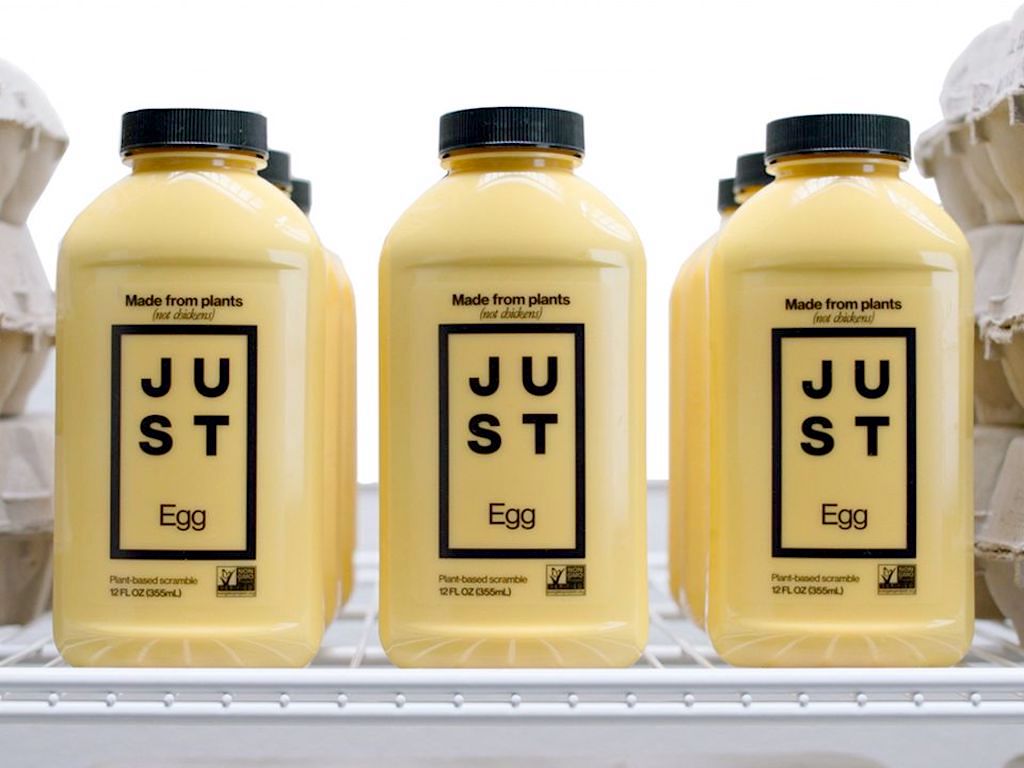3 Mins Read
Eat Just, the food tech behind its famous plant-based JUST Egg, is slated to enter the European market in 2021. With its manufacturing, distribution and delivery infrastructure in place, the company is now waiting on regulatory approval ahead of its planned roll-out across “major retailers, large quick-service restaurants, large hotel operators in most countries in western Europe.”
Those were the words of Josh Tetrick, the San Francisco-based food tech’s co-founder and CEO in a recent interview. Once it obtains government approval, the company is going to spring into action to start selling its famous mung bean-based vegan JUST Egg, which comes in liquid and frozen varieties, across Germany, Italy and the Netherlands, Tetrick told Bloomberg. He predicts that the approval will come just in time before next year.
Earlier in May, the company made public its new alliance with German pea protein producer Emsland Group to set up a “dependable, efficient and expandable” manufacturing base in the continent. It builds on a previously announced manufacturing and distribution channel with Eurovo Group, a leading egg producer with large-scale operations across Europe, and a sales and distribution deal with PHW, Germany’s biggest poultry producer. On top of this, Eat Just is working with Berlin-based food delivery company Delivery Hero.
You find even more openness in western Europe than you would find in the U.S.
Josh Tetrick, Co-Founder & CEO of Eat Just

Introducing its products to the European market is a part of the firm’s ambitious global expansion, but the region is particularly favourable given its growing flexitarian and plant-based population. A recent study conducted amid the coronavirus pandemic found over 20% of European consumers now consider themselves flexitarians while the number of vegans have doubled, while another report projects that the region’s plant-based protein market will reach US$8.9 billion in less than five years, propelled by the fast-growing demand.
“You find even more openness in western Europe than you would find in the U.S.,” said Tetrick, explaining the decision to pursue the market despite the notoriously strict and long regulatory procedures in the European Union.
At the moment, Eat Just has gained a foothold in a number of markets beyond its U.S. homebase, including across Asia. It’s flagship plant-based egg product is currently available in South Korea through its local distribution partner SPC Samlip, in Thailand with food giant Betagro, across Hong Kong’s Green Common stores, and in mainland China where it is sold via the Alibaba-owned Tmall e-commerce platform and JD.com.
We’re in conversations with major retailers, large quick-service restaurants, large hotel operators in most countries in western Europe.
Josh Tetrick, Co-Founder & CEO of Eat Just

Just weeks ago, the food tech announced that it is bolstering its Asia footprint with a new partnership with investment management firm Proterra to build a new production facility in Singapore. It marks the company’s first Asia production site and the largest of its kind in the city-state, slated to open by 2022.
Beyond its strategy to introduce its eggless egg globally, Eat Just revealed at the time that it is also in discussions with Proterra to work on bringing cultured meats to market – another stream the food tech is also working on.
In a recent talk, Tetrick estimated that cell-based meats will be available to mass consumers within a timeline “north of 15 years”, in stark contrast to plant-based brand Impossible Foods founder Pat Brown’s pessimistic outlook that he doubled down on during a virtual conference attended by Green Queen last month.
All images courtesy of Eat Just.




